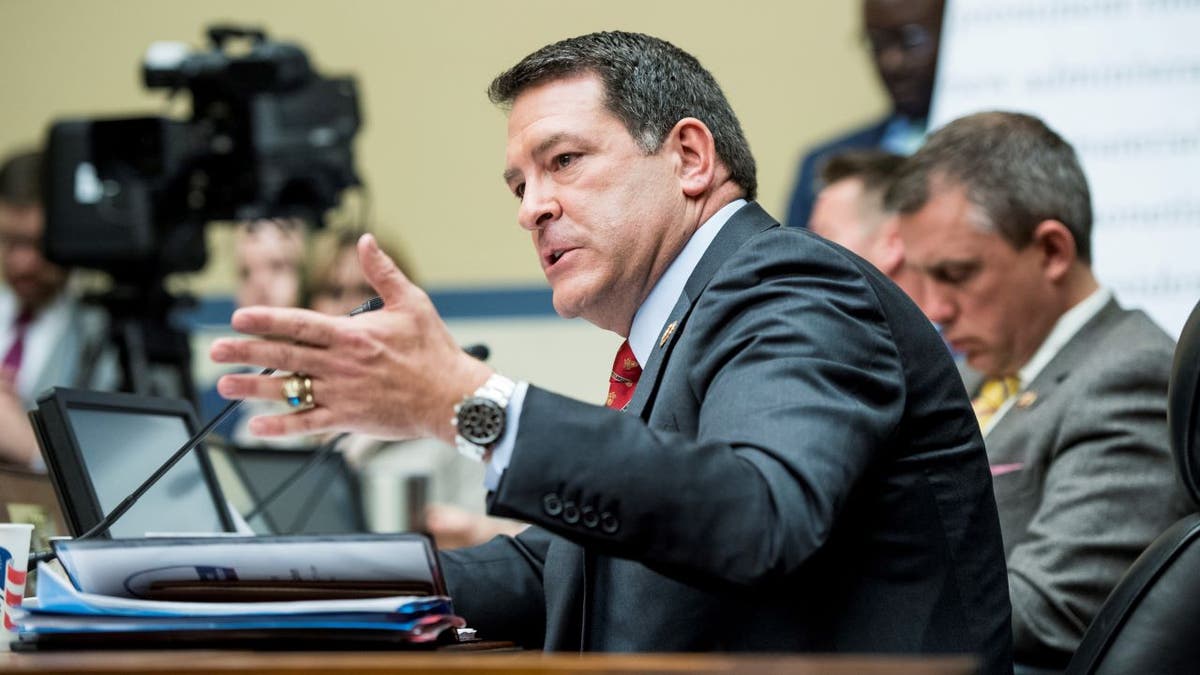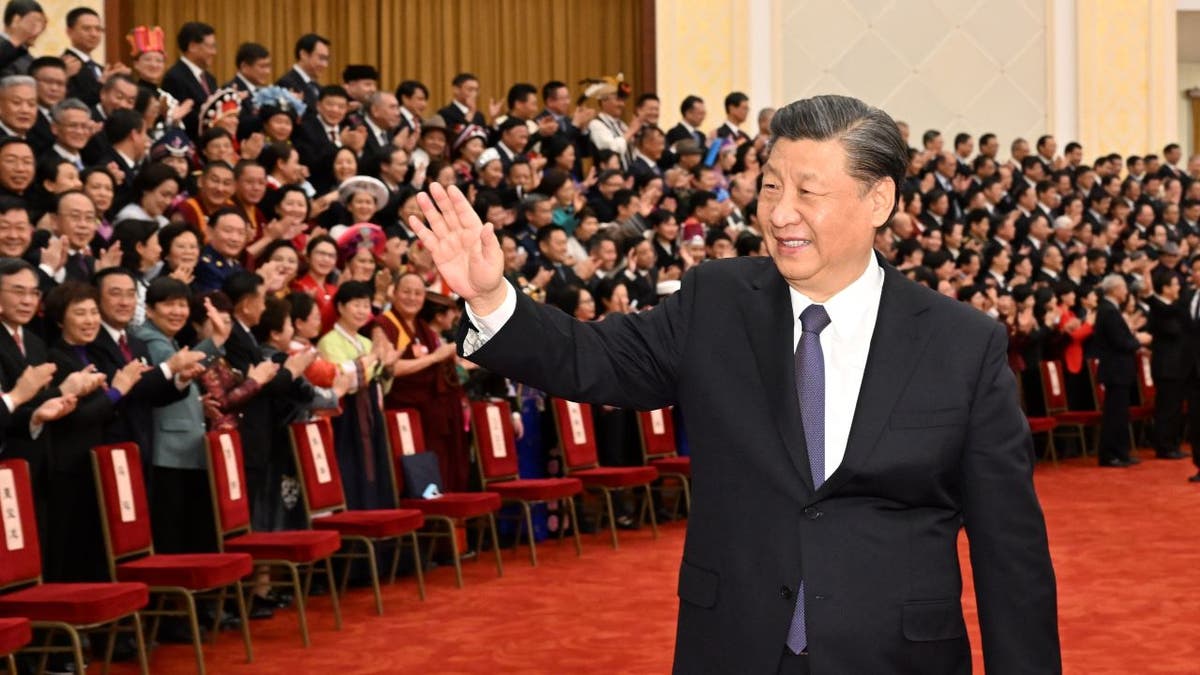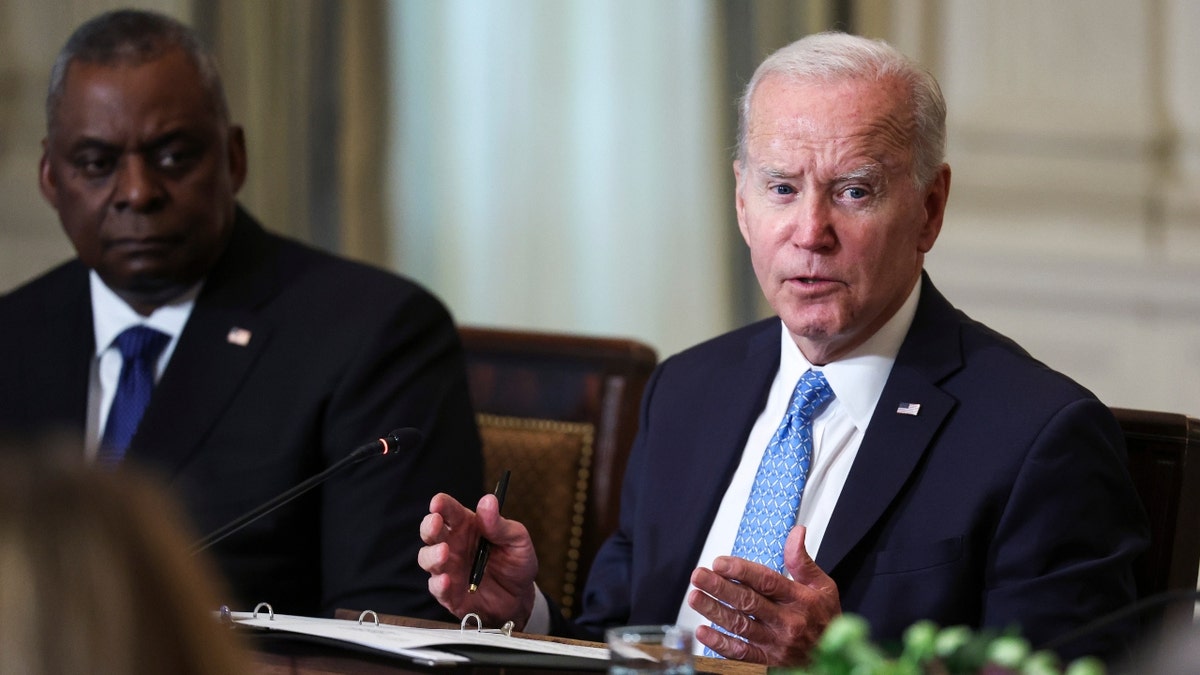Ratcliffe: China aims to 'test Biden's leadership,' level of 'pushback'
Former Director of National Intelligence joins 'Life, Liberty & Levin' to discuss the Biden administration's foreign policy approach
China is using high-end technology to oppress its own citizens and even erase its own history, which is why the U.S. needs to put tough restrictions on the export of artificial intelligence and other technology to Beijing, according to a lawmaker who has a bill designed to do just that.
Rep. Mark Green, R-Tenn., told Fox News Digital that China has managed to use technology to erase national awareness of the Tiananmen Square massacre in 1989, when hundreds and possibly thousands were killed and many more injured.
"Despite the historical importance of Tiananmen Square, most people in China do not even know the massacre occurred," Green said. "This is because the CCP scrubbed these events from its heavily censored internet and has kept it out of books and out of school. Using its advanced technology, the CCP has erased its own history."

Rep. Mark Green is warning that exports of high-tech systems, including those used to develop AI, are only allowing China to harm its own people and possibly U.S. citizens. (Bill Clark/CQ Roll Call)
"This regime steals American intellectual property and then undermines our national security, oppresses its own people, and threatens global stability," he added. "My legislation will keep the CCP from getting access to our sensitive technology."
Green’s bill is the China Technology Transfer Control Act, which is aimed at imposing new limits on U.S. technology exports to China in order to ensure the U.S. maintains its competitive edge, and to keep Beijing from using advanced systems against its own population. "We must ensure we aren’t giving the CCP the tools to harm our nation or its own people," he said when he introduced the bill in mid-April.
His bill seeks to impose new export restrictions on technology used to create AI systems and other technology related to robotics, biotech, computing and internet-related services. Export restraints on those goods would be imposed when it would aid China’s military, harm U.S. national security, or allow China to carry out "violations of human rights or religious liberties" against its own people.
AI PAUSE CEDES POWER TO CHINA, HARMS DEVELOPMENT OF ‘DEMOCRATIC' AI, EXPERTS WARN SENATE

China, led by President Xi Jinping, has bristled at the idea of restrictions on its ability to use AI and other technology developed by other nations. (Li Xueren/Xinhua via Getty Images)
Green said AI poses a particular threat, which is why the U.S. must be more cautious and impose export restrictions on China.
"AI offers Americans new and exciting ways to educate our children, run our businesses, and secure our nation, but like many other technologies there is also the risk of foreign malicious activity, including by the CCP," he said. Green added that implementing AI systems inside the U.S. can also pose a threat if the full ramifications of these systems aren’t understood.
"The threats posed by the CCP are multi-faceted and complex, to include threats to our nation’s cyber infrastructure and supply chains. Therefore, we must proceed with extreme caution when implementing advanced technological solutions like AI into our nation’s critical infrastructure," he said.
House GOP leaders haven’t signaled whether they have an interest in moving Green’s bill this year, but his proposal to restrict the export of AI and other technology to China is one that the Biden administration itself is considering.
ALTERNATIVE INVENTOR? BIDEN AMIN OPENS DOOR TO NON-HUMAN, AI PATENT HOLDERS

President Biden has indicated he is close to introducing an executive order aimed at limiting AI exports to China. (Kevin Dietsch/Getty Images)
The White House has been signaling for months it is getting closer to an executive order that would put limits on tech exports to China related to AI, semiconductors and quantum computing. Biden may put the idea forward around the time of the Group of Seven meeting in Japan later this month.
Chinese officials have already lodged an angry response to the idea. In April, a spokesman for China’s Ministry of Foreign Affairs accused the U.S. of pursuing "selfish interests" by limiting China’s capacity to use global AI technology.
CLICK HERE TO GET THE FOX NEWS APP
"Such blatant act of economic coercion and sci-tech bullying is against the principles of market economy and fair competition, undermines the international economic and trading order, disrupts and destabilizes global industrial and supply chains, and hurts the interests of the whole world," the spokesman said.
He also warned China would "firmly safeguard our rights and interests" on this issue but did not say how.














































